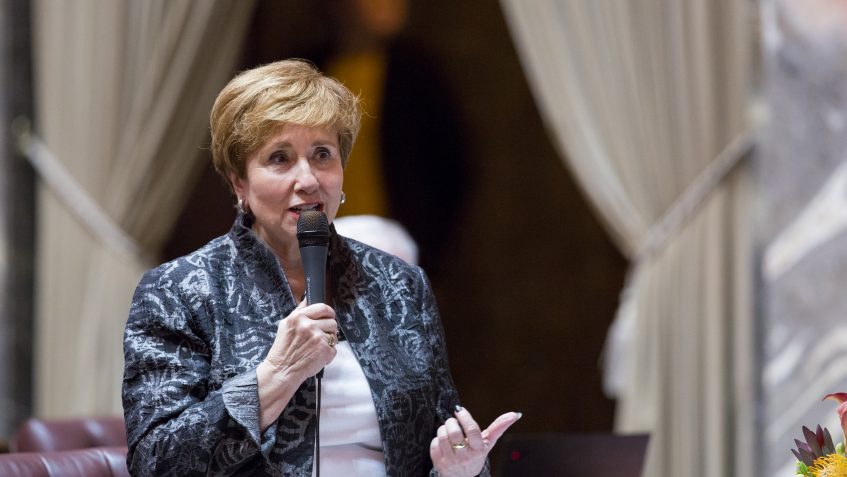A bill passed today by the Washington State Senate would update the state’s levy policy to better serve students, teachers and Washington’s 295 school districts.
In 2017, the Legislature made historic changes to the state’s school levy policy to satisfy the state Supreme Court’s McCleary ruling that basic education must be funded by the state, not by local levy dollars. Senate Bill 5313, sponsored by Sen. Lisa Wellman (D-Mercer Island), updates that policy by allowing local taxing authority for non-basic education programs such as athletic teams, debate clubs, summer learning programs, field trips, mentoring, and teacher training.
“This bill would allow voters and school districts to fund enrichment programs that fall outside basic education,” Wellman said. “It allows communities to decide what’s important to them and act accordingly.”
The bill is the result of discussions with districts, teachers, parents and students over the past year. People from throughout Washington testified in the Senate Early Learning & K-12 Education Committee, chaired by Wellman, asking for changes to the enrichment levy policy.
SB 5313 would allow levies in the amounts of:
- The lesser of $2.50 per $1,000 of assessed value or $2,500 per pupil for school districts with fewer than 40,000 FTE students; and
- The lesser of $2.50 per $1,000 of assessed value or $3,000 per pupil for school districts with 40,000 FTE students or more.
Districts would receive local effort assistance funding when a district receives less than $1,500 per student with a levy rate of $1.50 per $1,000 of assessed value.
The bill would ensure that enrichment levies are used only for enrichment activities — not basic education — by directing the state auditor to review local revenue expenditures. A school district found to have used levy funds for non-enrichment activities would see its levy rates reduced for the following year in an amount equal to the amount spent improperly.
“It’s clear that after making such large changes in 2017, which did not work as well for some districts as for others, we need to adjust our formula,” Wellman said. “This will allow communities to fund programs they value without triggering another pre-McCleary situation where local levies are paying for teacher salaries. This bill has teeth, ensuring that enrichment levies pay only for non-basic activities that local taxpayers choose.”
An amendment made on the Senate floor would make charter schools, tribal compact schools and other identified school districts eligible for specific local effort assistance funds. It also increases the local effort assistance rate for all districts that qualify.

